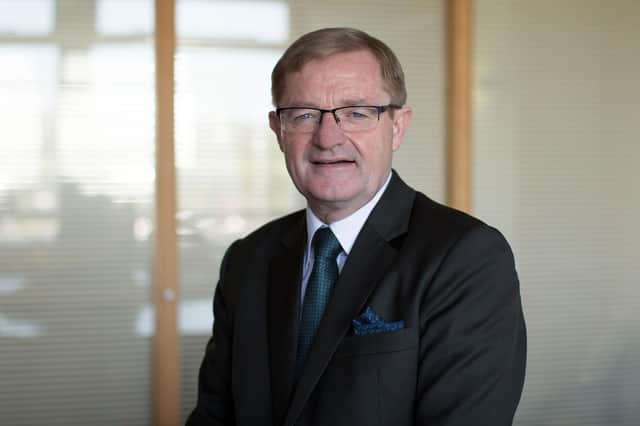Stigma and delayed diagnosis are still biggest challenge for Alzheimer's patients


Professor McKenna is passionate about the role volunteers, including those living with dementia, can play in shaping the direction of charities and public bodies. Like many people, his own family has experienced the challenges of caring for someone with dementia;
“My wife’s father had Alzheimer’s disease and it was very, very difficult for the family. He was very independent and his car was central to that. I remember it being very hard when we had to find a way to stop him driving because we knew he was becoming dangerous. My wife has a large family, but of course for many people nowadays that family support isn’t necessarily there. We have an ageing population and there will soon be around fifteen million people living with dementia in Europe, although of course, it’s not just older people who are living with dementia. It’s a huge and growing challenge so when an opportunity to join Alzheimer’s Society came up, I said to myself – that’s a really good charity and I can learn a lot from being part of it, and hopefully contribute something.”
Advertisement
Hide AdAdvertisement
Hide AdProfessor McKenna says that the charity is working hard to advocate on the issue of delays to diagnosis as well as a drive to overcome the stigma which still surrounds dementia;
“The biggest challenge facing people at the moment is how long it takes to get a diagnosis; the average is two years and, in many cases, it can be a lot longer. It’s only when people have a diagnosis that they can they access help, which can mean medication to slow the progression of their disease, access to a community care package, if that’s what they need, or to a wealth of activities from the Alzheimer Society, things like Singing for the Brain, which is growing in popularity.’
“There is still a stigma around dementia, and that’s something else I’m interested in given my mental health background. I’m old enough to remember when cancer was referred to as ‘the big C’. Now conversations can be had without embarrassment. Many people still have that problem with dementia and it can make the illness very isolating. I want people to feel able to discuss their diagnosis openly.”
With a long career of voluntary public service, including as a non-executive director of the Western Health and Social Care Trust, Chair of the Inspire charity and a member of the Patient and Client Council, Professor McKenna says that Alzheimer’s Society’s decision to involve people with dementia in decision making at the very top of the organization is a game-changer;
Advertisement
Hide AdAdvertisement
Hide Ad“The management term is co-design but I prefer to think of it simply as working together with people living with dementia to make people’s lives better. The Alzheimer’s Society Board of Trustees is the most senior governance group in the organization and is responsible for strategic direction as well as ensuring we make the best use of our resources. All Board members are volunteers. I chair the Society’s delivery support committee and the involvement of service users and the family members who care for them has been invaluable.”